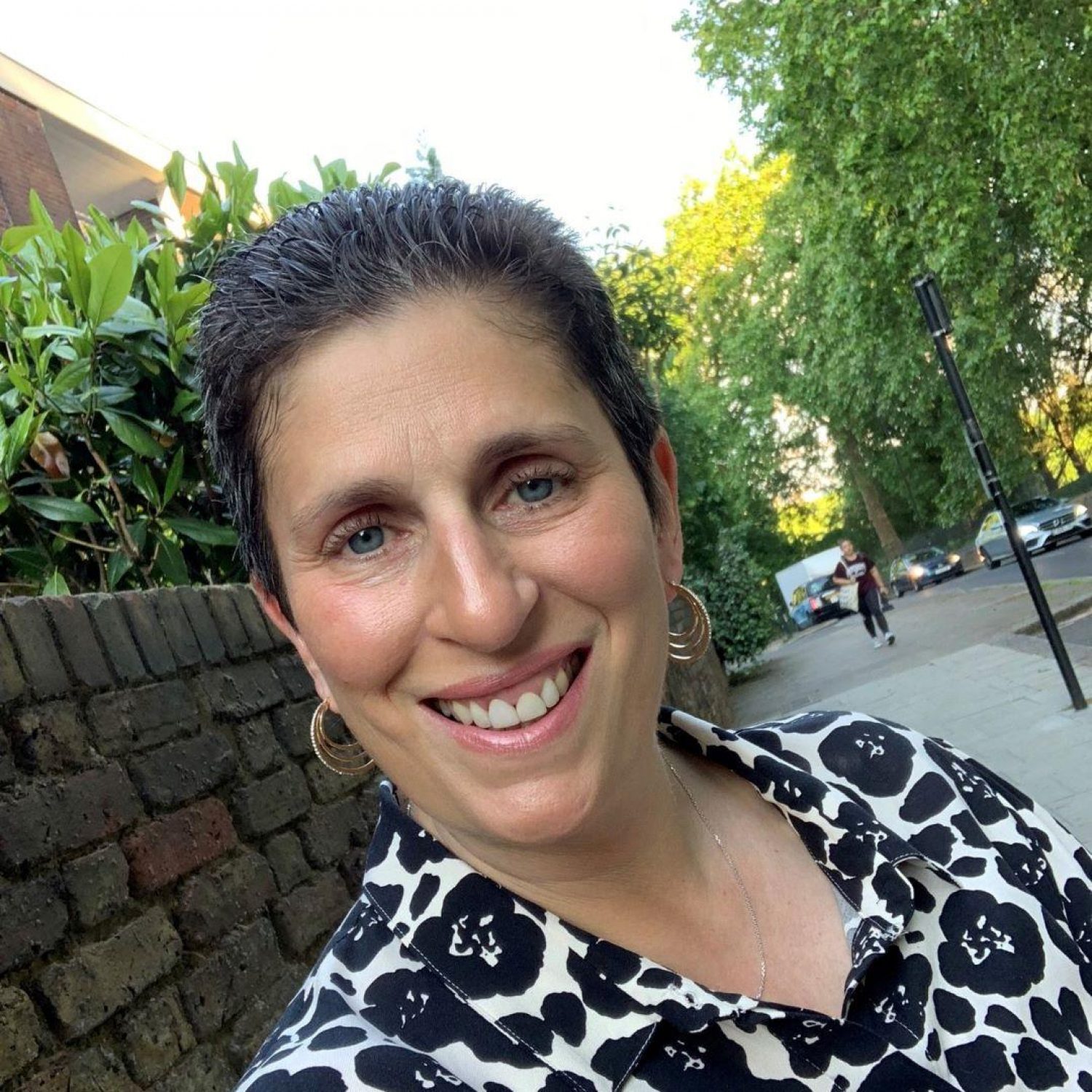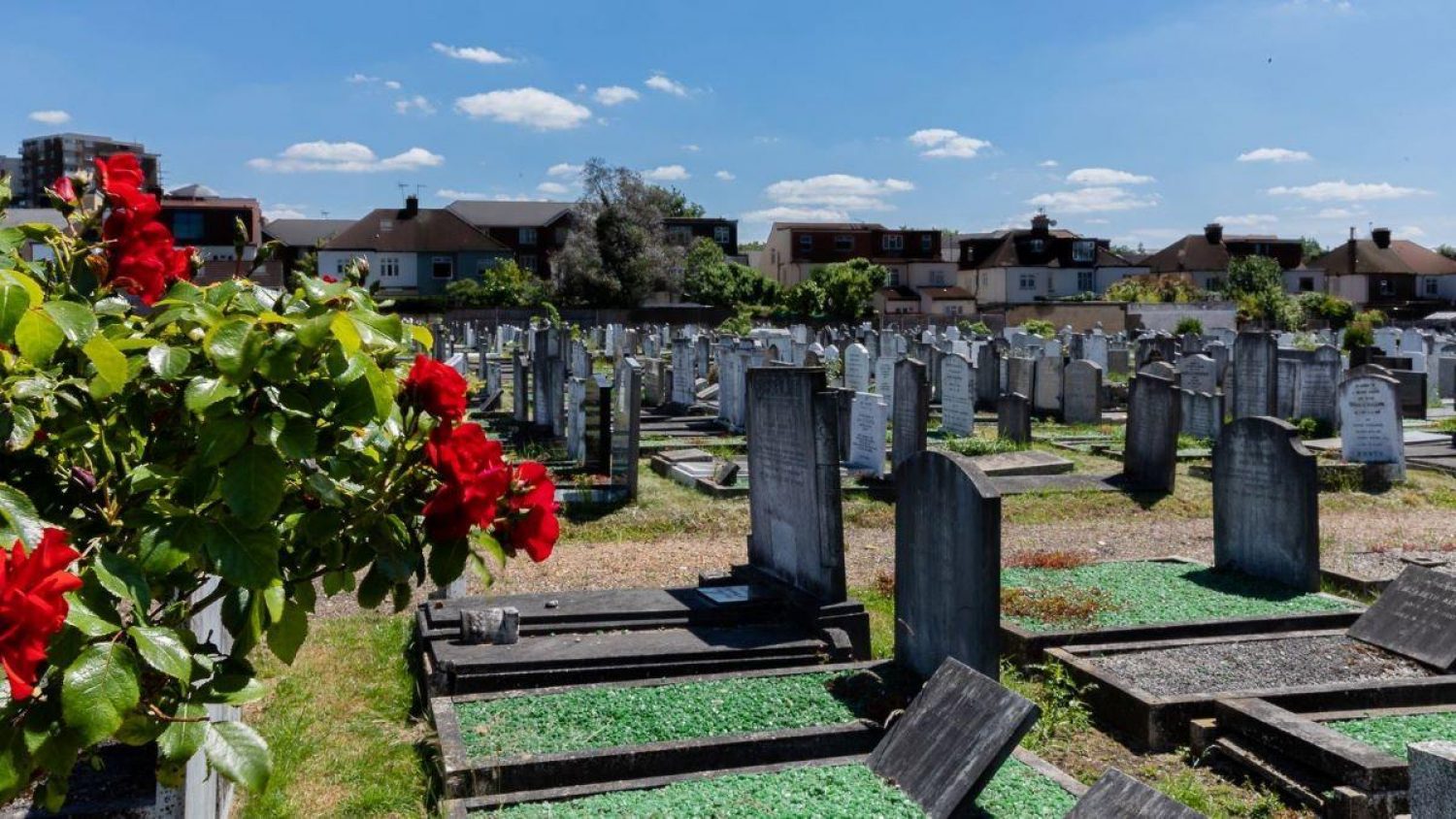Five minute read
Jo-Anne Winston is the funeral coordinator for the Liberal Jewish Synagogue in London, as well as being trained as a death doula. We talked with her about the significance of Jewish funeral rituals and what she loves most about her work.
So, what does a funeral coordinator do?
When someone in the synagogue dies, their family call me and I will guide them through the process of registering a death and I then make the funeral arrangements.
The Liberal Jewish Synagogue is quite unusual because we have our own cemetery. Members of the synagogue are automatically entitled to be buried there. Non-members can pay for a burial plot.
I probably organise about one funeral a week, so I have the time to invest in each person and to give the personal touch.
I also talk to people in the synagogue about anything relating to death, what they want to happen when they die, or I help them find someone’s grave in the cemetery.
I offer after-bereavement support too — I’ve made some lovely friendships from funerals I’ve arranged.
How did you get into this job?
Back in the 1990s, I worked for West London Synagogue doing a similar role, but I fell into the job originally.
I was working in another role at the synagogue, but when the man doing the funerals was on holiday, I answered his phone. When he left, they asked me, ‘will you do it?’ I was the first ever female funeral coordinator at West London synagogue, and I was young too, just in my 20s.
I left the job to have children, but once they grew up, I wanted to come back to work and do something similar. Nine years ago, this job came up at The Liberal Jewish synagogue. It’s not everyone’s cup of tea, but I’m passionate about it.
You’re Orthodox, but you have worked for both Reform and Liberal synagogues. What do you think are the most significant differences in funeral rituals between different branches of Judaism?
The Orthodox doctrine is that you must leave this world as you came into it, so Orthodox Jews must be buried. Liberal or Reform Jews can be buried or cremated.
There are certain rituals which the Orthodox and Reform traditions share, but the Liberals don’t. For example, tahara, the ritual washing of the body.
Two or three people will wash the body while it is wrapped in a shroud. You don’t speak while you are doing it out of respect for the person that has died. Everything happens in a certain order, finishing with covering the face.
Men wash men and women wash women. It’s private and personal, not something you talk about doing. It’s an honour to do this for someone.
If the person has been in hospital and, say, still has a cannula, this is taken out. However, it still goes into the coffin, in case there is any of the person’s blood or skin still attached.
Liberal Jews don’t do the ritual washing. One reason is that some of our members are couples where one is Jewish and the other isn’t. The non-Jewish husband or wife won’t have grown up with or understand the rituals. If they do ask for the person to be washed, our funeral director will do it.
For Orthodox Jews, the funeral must take place as quickly as possible, either the same day or the following day. Liberal Jews will wait longer, but normally not more than two weeks. However, arranging the paperwork for a cremation can take time.
Shiva is the seven days of mourning. This always happens within Orthodox tradition. It’s an opportunity for people to come and visit you, whether they were able to come to the funeral or not. Traditionally it’s an open house and people can come at any time.
Reform and Liberal Jews tend to choose the number of nights in the mourning period.
The first week of shiva is very intense, after that you mark the end of the first month, the third month and a year after the death, depending on the relationship between the mourner and the deceased.

